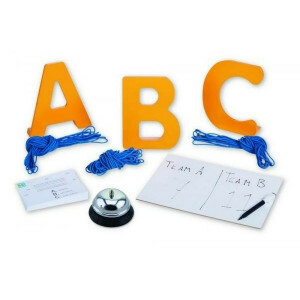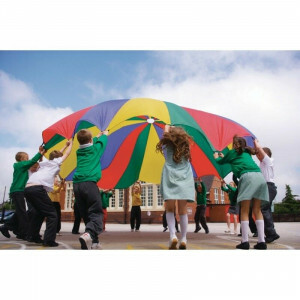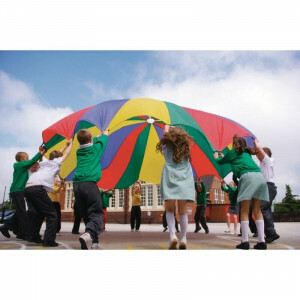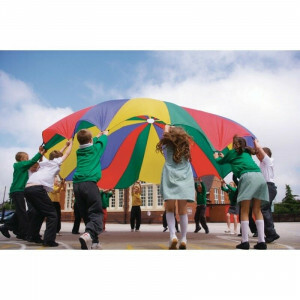Educational Games
-
 Run Quiz - Active and Educational Quiz Game | Multiplayer | Encourages Learning and Movement
Run Quiz - Active and Educational Quiz Game | Multiplayer | Encourages Learning and Movement
In stock
£27.86 -
 Parachute - Large - Ø350 cm.
Parachute - Large - Ø350 cm.
In stock
£63.86 -
 Parachute - Small - Ø180 cm
Parachute - Small - Ø180 cm
In stock
£36.86 -
 Human Skeleton
Human Skeleton
In stock
£16.16 -
 Parachute - Extra Large - Ø500 cm.
Parachute - Extra Large - Ø500 cm.
Out of stock
£81.86
Educational games
Or cognitive toys
Reflecting, argueing, issues solving - these are all aspects of cognitive development. Cognitive development and language development are closely intertwined and determine to a large extent how well children learnat school and beyond. Children develop their mental abilities in interaction with the world around them. Most children are naturally curious and inquisitive. There you can respond by offering something (a certain type of cognitive toys, A slightly more difficult question) what suits the interests and what challenges children to continue one more step in their development. Educational games and cognitive toys can certainly help.
Children between 4 and 6 year think concretely, from their experiences and observations. Children of four have fun in games like arranging objects by type, size or color. Do this in the form of educational games. While you talk about, you help children develop the language that goes with it: "That belongs to ..." "That looks like ..." "This is bigger / smaller than ..." And lets you hear how logical connections are brought into words, "Yes, that goes there because ..." Certain types of toys are very suitable for children in this age to make discoveries about, for example, speed (cars that drive from boards with different slopes) or gravity (ball court). The reading together and retelling stories from picture books stimulates the development of language and thought.
In the age group of 7-9 child is sharpat the memory and concentration. The educational games may also be of a different dimension. At school, the children learn to read and often they will read themselves on topics that are interesting for them. Therefore it is good if you take care of simple informational booklets, which the children can read independently. They also continue to read stories and articles from newspapers and (children's) magazines, which is a convenient way to expand the knowledge of the world and talk about the how and why of events in the near and more distant world. At this age children can play with more complex technical toys.
Per Sempre Toys has, for example, educational games or cognitive toys by Nikitin. This is used in many schools as educational toys.



